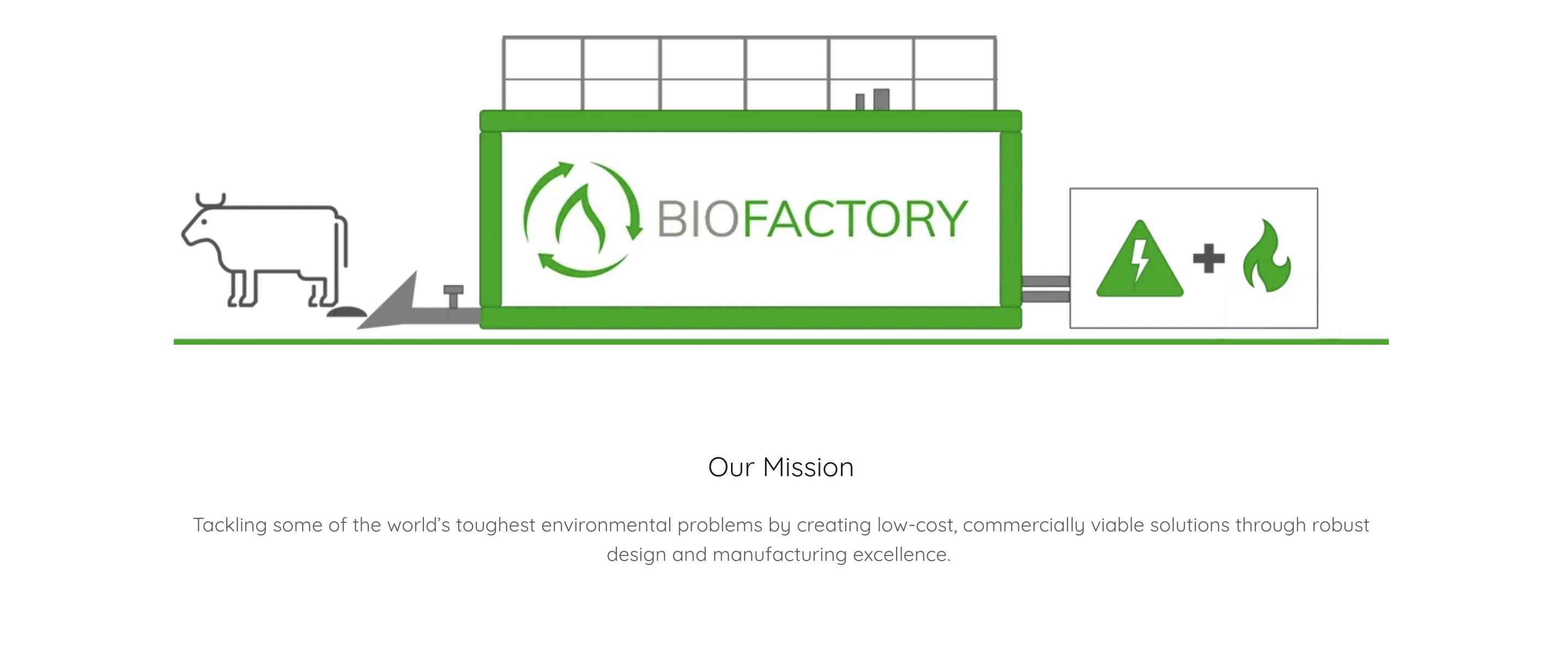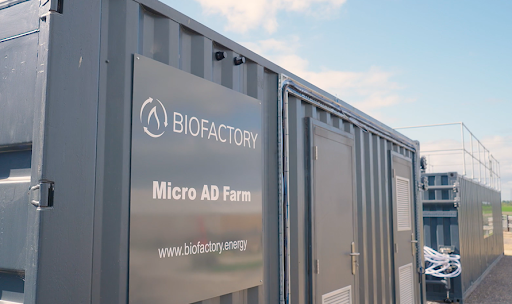News and Announcements

Breakthrough technology to address the UK Farm Energy Crisis: Investment Opportunity
- Published January 27, 2023 5:41AM UTC
- Publisher Wholesale Investor
- Categories Company Updates
Micro AD FarmTM: Innovative slurry-to-energy technology for smaller dairy farms to reduce farm energy costs and GHG.

BioFactory is an engineering company that specialises in the use of Anaerobic Digestion (AD) technology for micro-scale applications to generate cost-effective on-site energy and reduce greenhouse gas emissions from existing waste streams. BioFactory has identified a significant market gap for the introduction of its primary product within UK dairying (£2bn), enabling the application of AD on small farms which is not viable with current market solutions. BioFactory has also had significant interest from international markets and other sectors (e.g., swine) for the product, which will be addressed after exploiting the dairy market gap.
Soaring electricity bills are driving smaller dairy farms (100 – 500 cows) to seek ways to mitigate the high cost of energy. In some cases, farmers have seen their electricity costs more than triple in 12 months.
However, dairy farms possess a large quantity of cow slurry. In normal storage conditions, slurry breaks down naturally through the process of AD into methane, a potent greenhouse gas, which is lost to the atmosphere. Methane is a source of fuel that can be used to generate electricity and heat energy for use on farm, replacing expensive energy purchased from the Grid.
BioFactory reinvents traditional Anaerobic Digestion (AD) technology to be able to mass produce and standardise solutions for small-scale applications. By reducing system capital and operating costs through innovative design, BioFactory have launched “Micro AD Farm” which makes AD technology and its benefits now affordable for 6,700 smaller UK dairy farms, filling a significant market gap.
Chris Brake, 3rd Generation Somerset Dairy Farmer believes that:
‘Micro AD Farm is going to fit in well with the current legislation on the restrictions on slurry – I think it’s come at a really good time for the sector. It’s just got Dairy Farmer written all over it.’
Micro AD Farm captures methane emissions from cow slurry, converting it to energy usable on farm. Each system installed in this new market, reduces a farms carbon footprint by between 20-60 T CO2e/yr in the current design, with this increasing to over 100+ T CO2e/yr with the integration of carbon capture technology into the design between now and 2025 as the technology matures.
Following equity raises totalling £270,000 in 2020 and 2021, alongside £670k of grant funding, BioFactory has been able to demonstrate that its technology works through the deployment of two first-generation prototypes on-farm in 2022. BioFactory is now seeking £400,000 investment to take the technology to the next stage, prior to full commercialisation in 2024. This will involve deploying two further prototypes on-farm in 2023, which will be the first third-party sales. These prototypes will be the final commercial design iteration and will enable BioFactory to gather more extensive performance data to validate the technology for both customers and asset finance companies. BioFactory has already received a high degree of interest from the farming community for Micro AD Farm and two further sales demonstrators will support its already healthy sales pipeline.
Jon Blake, BioFactory’s CCO commented:
‘Dairy sector engagement continues to move forward positively, with several larger farming organisations and milk buyers in discussions with BioFactory about potential collaborations. Micro AD Farm is making positive impacts in the community, and farmers understand the monetary and environmental benefits the system could have on their businesses, stabilising energy costs bring peace of mind and opportunities to future planning.’
Connect with the company and learn more about BioFactory Energy by accessing their deal room here.
Company Updates
Backed By Leading Investment Groups and Family Offices







